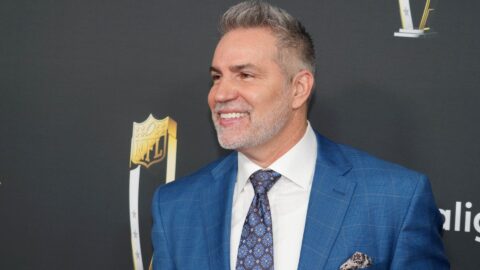"After so many years spent at odds with his family, the public and himself, so many years of fierce contradictions and ferocious standards, he had said all he wanted was to have them say he was the greatest hitter of all time. But of course nothing with Ted Williams could ever have been that simple."
In essence, that's the message behind Ted Williams, the new documentary about the Red Sox legend that premiered Wednesday night on HBO. The film, written by Aaron Cohen and narrated by actor Liev Schreiber, tells the story of the Splendid Splinter on and off the field, interweaving tales of the man's personal life with the career of one of baseball's all-time greats.
From the very beginning, Williams was focused, preoccupied, possibly even obsessed with hitting. His athletic talent, technical skill and personal ambition were so strong that he could be concerned with nothing else in life. The film, produced by Margaret Grossi with interviews conducted and stories edited by Mary Carillo, tells of both the great payoffs and the great pitfalls of Williams' ambition.
Almost immediately after his arrival in Boston and his April 20, 1939 debut, Williams was the cornerstone of the Red Sox franchise. The organization had the fence in right field moved in to nurture the Kid's power; manager Joe Cronin rearranged his defense to move Williams to an easier defensive position in left field. The team revolved around Williams from the very start, and he quickly learned the perils of his own fame.
When he slumped in his second season and hit just 23 home runs (never mind that he batted .344), the Fenway fans booed him. Whenever he slipped up in the slightest, the relentless Boston media questioned him.
Whenever Williams took too many walks, they wanted him to swing the bat and drive in runs. Whenever Joe DiMaggio won a championship ring (he ultimately took home nine), they wondered why Ted wasn't a winner. The fans and writers in Boston antagonized their greatest player, and all he really wanted was to block out the distractions and hit.
His ambition as a baseball player clouded his personal life. Williams was divorced three times; he found it difficult to be a family man. According to some, he had intimacy issues. He missed the birth of his first child in 1948 while on an offseason fishing trip in Florida.
But Williams wasn't just a ballplayer. After winning the Triple Crown in 1942, he walked away from the game to fight for his country in World War II. He did it again in Korea. All told, he lost five prime seasons to his work in the armed forces. He was 34 when he returned to baseball for good. He was past his prime and in for an anticlimactic decline.
During his playing days, Williams spent a tumultuous career in Boston, where the fans dogged him and the writers loathed him. After his retirement, though, things changed. He was known less as the notorious star who never tipped his cap, and more for his other pursuits in life.
He worked passionately with the Jimmy Fund, doing everything he could to combat cancer and help kids. He took up fishing, interestingly enough, discovering that the coordination and precision he applied to hitting baseballs translated perfectly to catching fish, which became a serious pursuit later in his life.
He also never fully gave up baseball. He returned to the game as a manager, with the Washington Senators in 1969. He was good at his job but quit because he couldn't stand teaching players who didn't have his talent.
The film touches on all the classic highlights of Williams' career — his pursuit of a .400 season in 1941, his walk-off home run in the All-Star Game, the home run he hit in his final at-bat at Fenway Park. It visits the great unforgettable moment of his retired life: the ceremonial introduction of the baseball legend before the 1999 All-Star Game at Fenway.
Carillo's interviews feature a fascinating blend of sources — Boston sportswriters like Leigh Montville and Tim Horgan, Red Sox legends like Johnny Pesky and Bobby Doerr, modern-day stars like Nomar Garciaparra and Tony Gwynn. There's even a former American president: George H. W. Bush, who is proud to have considered Williams a political ally.
All these guests have a story to tell. Their testimony is perfectly intertwined with the story of Williams' career and his life — for any fan of Teddy Ballgame himself, the Red Sox, or simply the game of baseball, the film should not be missed.
Ted Williams opened this week and will air many more times over the course of the next month.



